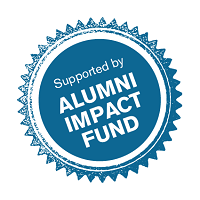Alice Spilman, MSc Global Cooperation and Security
Overview
A voluntary work placement in the Institute for Conflict, Cooperation and Security. I assisted Professor Wheeler on research looking into responsible nuclear sovereignty and the future of the global nuclear order. The work is part of a bigger project between the ICCS and the British American Security Information Council, working towards a framework for discussing and determining responsible nuclear behaviour for state leaders.
My role was to find statements and policy documents that pointed towards whether or not a state, or state leader could be deemed as ‘responsible’ with regard to nuclear weapons. This looked specifically at the nine nuclear states, with a particular focus on North Korea and the US given their current ‘dispute’.

Placement impact
“Whilst I believe simply having completed the placement may help me get my foot in the door with future employers, having developed certain skills and experiences I also believe that this placement will aid my success when I am in employment.”
What were your main achievements?
I managed to create a small database of information on the idea of state leaders being responsible with nuclear weapons. Therefore I would say that my main achievement was not actually creating something within the placement, but my overall development as a researcher. I now have experience of doing content analysis that I was never required to do for university work and had to present that in a manner of my choosing. Whilst I found this type of work challenging and felt daunted by the level of independence given, I managed to do it myself without being told exactly what to do and provided Professor Wheeler with information that I had found and extracted on my own.
I also feel a sense of achievement that I was able and confident enough to put forward my own ideas to Professor Wheeler. I definitely feel as though I have grown from believing everything written down in an academic journal, to being able to discern and be critical of information on my own and, from there, develop my own ideas.
What did you enjoy the most?
There were two aspects of the work placement I enjoyed most. Firstly, the placement gave me the opportunity to learn more and engage in a topic I didn’t really know existed before I started. Indeed, although it was difficult because I had to do a lot of background reading to understand the concept, it expanded my knowledge base and also interest in nuclear weapons. It is unlikely I would have looked into the notion of responsible nuclear sovereignty had I not been doing this placement, and now that I have done the placement I have a whole new interest in the subject which I would like to continue engaging with.
Secondly, I enjoyed discussing ideas with Professor Wheeler as an equal, no longer as a student. We would meet in person and over Skype to discuss where he wanted the project to go, what I was finding out and what I thought. I felt that he really valued my input, which was a huge confidence boost in my intellectual ability. I also appreciated being pushed to think on my own and attempt to think up new ideas rather than just regurgitating academic articles.
What were the hardest aspects?
Firstly, the level of independence that I was given as I felt very out of my comfort zone - Professor Wheeler would just give me an idea and tell me to run with it! This was challenging.
Similarly, I found the fact that this is such a new project and there is very little research already on the area, made it difficult for me to fully grasp the concept of the project. If you Google responsible nuclear sovereignty, only a couple of things come up and they are nearly all work Professor Wheeler has already contributed to. Whilst this was good in that it made me think for myself more about the idea, it also made the process very time consuming and difficult to provide Professor Wheeler with additional information that he didn’t already have.
What skills have you developed?
I have certainly developed my research skills, which was the purpose of undertaking this placement. I have learnt how to find things when a simple Google search won’t suffice by going directly to sources and altering what you choose to search. In this respect I feel I have also learnt to navigate government websites and databases from multiple countries to find the information needed. Indeed, I feel more confident in finding sources, and I wished I had this when I did my dissertation!
Having improved my ability to locate sources, and extract the relevant data from them, I have also learnt more about how you can then use that data and compile it into a usable database. The type of simple coding I learnt to use will be incredibly useful in any research job.
The other skill I developed most is my ability to think creatively and critically. Rather than answer a simple question, I was trying to come up with new ideas which involved some serious thinking outside the box and questioning of the status quo. This means not taking previous academic work as given and being able to draw inferences from new findings to come up with new ideas. I feel much more confident now in putting forward alternative ideas.
How do you think your internship will benefit you in the future?
I think that my activity will benefit me in the future by giving me some real life experience I can talk about in job applications and interviews, as well as demonstrable evidence of important skills. Now I can talk to prospective employers about research skills. For example, rather than just talking about my university work, I can show them the work that I have done with Professor Wheeler as evidence of those research skills. This will help set me above others who have equally good academic transcripts but have not undertaken much work experience.
The placement has also given me a great contact in Professor Wheeler which I believe may be beneficial in the future for further networking opportunities and advice on future careers.
Whilst I believe simply having completed the placement may help me get my foot in the door with future employers, having developed certain skills and experiences I also believe that this placement will aid my success when I am in employment. Indeed, the experiences I have gained in talking to senior academics have given me the additional social skills which are beneficial in the workplace, especially as I am aiming to work in the foreign office.
Thank you to donors
The completion of this work placement, which I truly believe will be a huge benefit to my future career, would not have been possible without the support I have received from this bursary scheme. The generosity of alumni and donors in supporting the development of a new generation of students is what makes the University of Birmingham such a special place, and why it has previously been named University of the year for graduate employment. I hope that in the future I too can make a contribution to a university that has given me so many opportunities. Thank you!
With grateful thanks to the alumni donors who made the PGT Professional Development Bursary possible.
